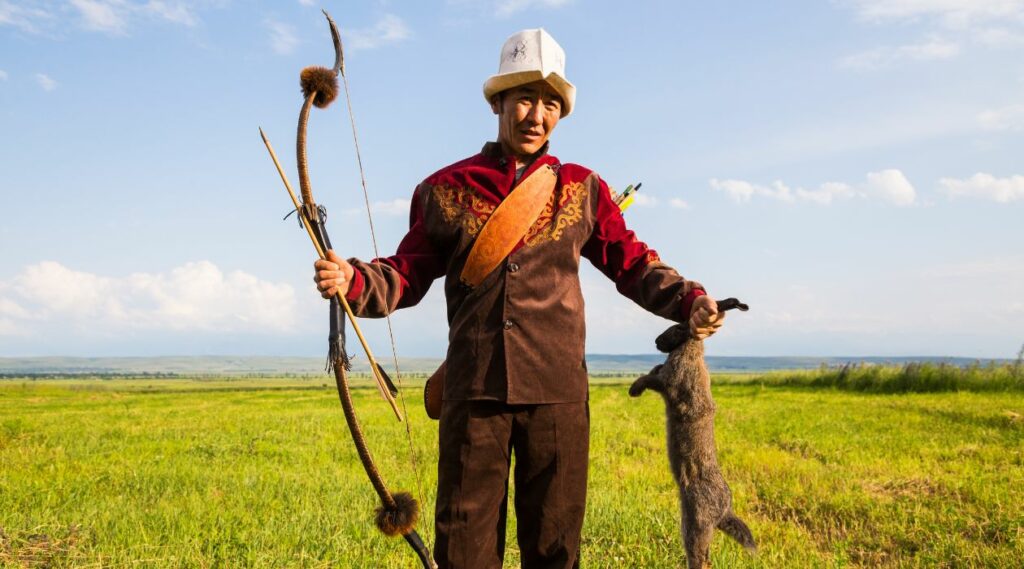What Does a Hunting Outfitter Do & What Makes a Good Hunting Outfitter
A hunting outfitter is a business that has a license and hires guides to take hunters on hunting trips.
Outfitters offer their clients a wide range of products and services to make sure they have the best time and the best chance of success.
A good South African hunting outfitter should provide experienced and knowledgeable guides who can give professional advice on every aspect of a hunt – the best place to find an animal, the best way to hunt it, the best caliber and shot placement.
In short, they should know what they are doing and have done it before.
A trustworthy outfitter should have high-quality guns, ammo, and binoculars for their clients to use and provide suitable accommodation and transport to his hunting clients.
Most importantly, a good outfitter should be clued op about obtaining the licenses and permissions hunters would need to hunt in an area.
Lastly, every member of the hunting safari should feel safe. A trustworthy hunting outfitter will give their clients safety training and follow all safety rules to the letter.
The Difference Between a Hunting Outfitter & a Guide
The outfitter is a licensed business that brings in hunters.
Guides are contracted or employed by outfitters, and they are the individuals who actually take hunters afield and help with their hunt.
Most outfitters are also guides, and begin their careers as guides, but not all guides are outfitters.
Guides must be in good physical condition to handle any terrain. They should be master hunters and also be well versed in first aid, survivalist, and safety skills.
Being personable, outgoing, and good at communicating makes a person an excellent hunting guide.
5 Tips on how to Choose the right hunting outfitter
Hunters can learn a lot from the internet, but keep in mind that not everything you read on the web is true.
If you book a hunt based only on a website, you are asking for trouble. Instead, you should ask for references and, this is very important, call those references. It is easy for a shady guide to take pictures of trophy animals from social media and use them on their website.
It is also a good idea to ask guides and outfitters if they belong to any professional organizations. If they do, contact the organization directly to make sure they are members in good standing.
Then follow these 5 tips:
Ask Questions
Ask for a detailed list of how much a hunt will cost, and make sure you know when you have to pay.
Also, figure out how the meat and trophies will be shipped and how much it will cost.
Instead of asking about the size of the trophy, ask your guide if someone with your level of fitness can enjoy that hunt.
Some wild hunts may be out of reach if you cannot climb or hike long distances. Be honest with yourself and don’t sign up for something you cannot do.
Also, be very honest about how well you can use a rifle. If you do not feel comfortable shooting past 200 yards, tell your guide and ask if that will make your chances of success less.
What Are Their Code of Ethics
One of the first things you should ask an outfitter you want to hire is how the hunt will go. Will the game have a fair chance? Will you use bait or feeders? If so, is that allowed where you will be hunting? What happens if an animal gets hurt and runs away?
Follow your gut and do not book the hunt if you suspect you may be dealing with an unscrupulous outfitter.
Know the Market & Compare Outfitters
When booking a hunt, it is a good idea to compare prices like you would with anything else. Attending a convention like the NRA Great American Outdoor Show in Harrisburg, Pennsylvania, or the Dallas Safari Club Convention in Dallas, Texas, is one of the best ways to compare prices on hunts.
You will have a chance to meet guides in person, and you will also be able to compare prices between different guides and outfitters. If one guide is much more or less expensive than the others, you should find out why.
Also, compare the outfitters’ success rates, but do not get too excited.
If something sounds too good to be true, it probably is.
Don’t be pressurized
Guides make money by selling hunting trips. The more trips they sell, the more money they make. Do not let any guide, good or bad, push you into signing a hunt contract before you feel ready.
They might try to get you to book with them by offering “end-of-season specials,” but you should not put saving a few hundred dollars ahead of booking with the right outfitter.
Be upfront and honest about your budget and expectations, but don’t let anybody convince you to waste your money.
Remember, The Buck Stops with You
It is not just up to the outfitter to make sure that a hunt goes well.
You have to do your part by being in the best shape possible, knowing how to use your rifle well, and having a good attitude.
Know that there are some things a guide cannot do anything about, like the weather or how the animal you are hunting acts.
A client with a bad attitude and sour attitude can ruin a hunt.
You hire a good guide who knows the area well; therefore, listen to him. If they are good at what they do and have experience, let the guide use his skills to help you find the trophy of a lifetime. Follow your guide’s instructions and do your part, unless it is a matter of ethics.
